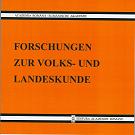DER „INLÄNDISCHE“ FEIND – DAS SCHICKSAL DER DEUTSCHEN IN ALTRUMÄNIEN ZWISCHEN NATIONALER IDENTITÄT UND RHETORIK DES KRIEGES (1914-1916)
“The enemy from inside” The destiny of the Germans from the Old Kingdom between national identity and the rhetoric of war (1914-1916)***
Author(s): Claudiu-Lucian ToporSubject(s): History
Published by: Editura Academiei Române
Keywords: Romania; war; nationality; German population; historical rivalry.
Summary/Abstract: The German population migrated, voluntarily, to the Romanian territories on the eastern side of the Carpathians from the first third of the nineteenth century onwards. Hardworking and enterprising, they found Romania an attractive country. For preference they established themselves in the urban areas and founded religious communities, associations and unions. Romanians respected them, even though France had always captured popular sympathy in the country. Before 1914 we cannot identify any tradition of historical rivalry between Romanians and Germans. The confrontation during the First World War was a product of propaganda. Germans were perceived as allied with the Hungarians, seen as the "mortal enemies" of the Romanian people, who condemned the "brothers" from Transylvania. Just as the friends of our friends are our friends, so the friends of our enemies become our new enemies. More negative stereotypes fed the nationalistic rhetoric with a violent tone. Germans bore the responsibility for triggering war in Europe. The Romanian press provided charged, stirring, rousing columns which produced emotions difficult for public opinion to control. It unleashed a veritable torrent of accusations, designed to convince the Romanians that they could not be allied with a people dominated by barbaric instincts. Once an honourable people, Germans in Romania became intriguers and spies overnight. They faced a largely hostile majority, which justified any form of casual irony, malice or intolerance. Both before and after the declaration of general mobilization, attacks and acts of violence against German subjects multiplied. One by one, the editorial offices of pro-German newspapers, the schools which formed part of the Evangelical community, the Romanian – German Agency for information, become hostile targets. They were visited by unfettered agitators. Many clashes occurred. Arrests followed.
Journal: Forschungen zur Volks- und Landeskunde
- Issue Year: 2012
- Issue No: 55
- Page Range: 145-154
- Page Count: 10
- Language: German
- Content File-PDF

